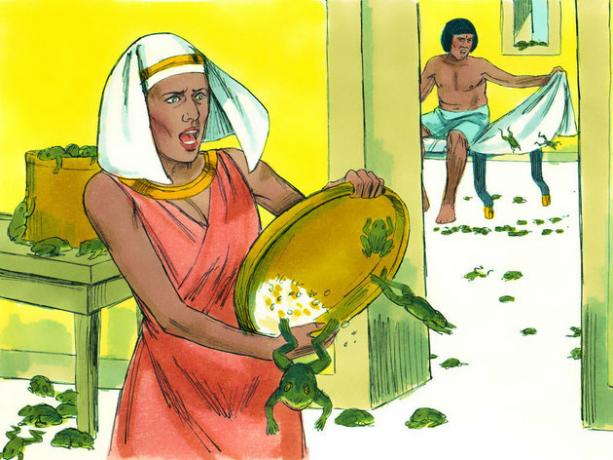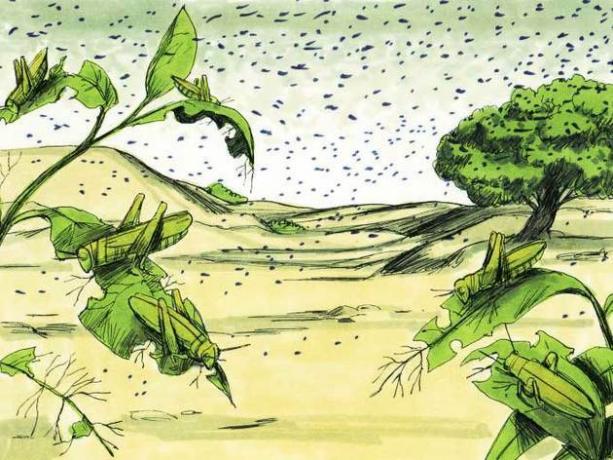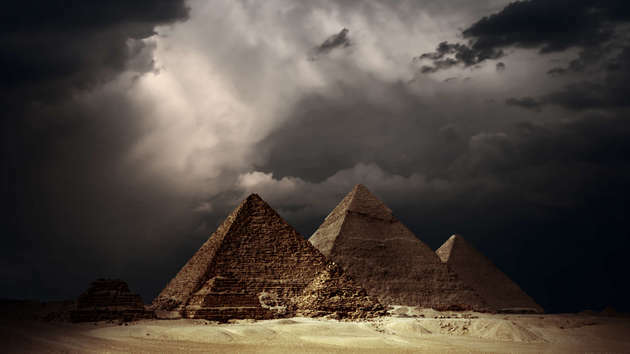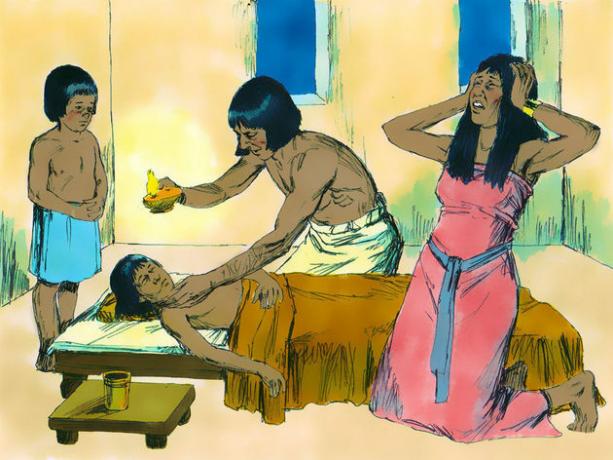At ten plagues of egypt they are a series of disasters inflicted by the god of Israel on Egypt, in the face of Pharaoh's refusal to deliver the people of Israel.
The episode is narrated in the Book of Exodus and references are made in the Book of Psalms as well as other passages from the Torah and Holy Bible.
Reasons for sending the Ten Plagues
The ten plagues were God's means of convincing Pharaoh to release the Israelites. Seeing the damage they caused to agriculture, livestock and the Egyptians, Pharaoh agreed to free the Hebrew people.
However, as soon as they were done, he would take it back. Therefore, the plagues lasted until the death of the first-born Egyptians.
The ten plagues were narrated in the form of poems from the oral traditions of the tribes of Israel. In a broader sense, they tell the battle between the power of the Hebrew god and the Egyptian gods.
On the one hand, we have Moses and his brother Aaron, on the other, Pharaoh and his priests, who try to repeat the plagues through their arts.
From this episode, the Israelites became aware of the power of their God, the Passover was instituted and the long journey through the desert towards Israel began.
Later, Christians gave new meaning to the Jewish Passover by identifying it with the resurrection of Christ.
pests
1. The waters of the Nile River turned to blood and no one could drink them.

2. Seven days later, a large number of frogs covered all the land and the houses of the Egyptians.

3. Mosquitoes appear that attacked humans and animals causing great destruction. This time, Pharaoh's priests could not repeat the same experience and admitted that it was the work of a superior being.

4. Lice appear throughout Egypt, with the exception of the region of Gosen where the Israelites lived.

5. Killing of cattle. All animals that belonged to the Egyptians died, but not those that were owned by the Israelites.

6. Ulcers appeared on the bodies of men and animals causing great suffering.

7. Hail storms that wiped out crops, livestock and killed people in the field.

8. Grasshoppers destroy crops

9. Darkness covers the sun for three days.

10. Death of the first-born Egyptians, from the children of slaves to the Pharaoh.

Significance of the Ten Plagues of Egypt
Plagues can be understood in a spiritual sense. Each of these scourges would be directed at a specific Egyptian god, and thus Israel's one god shows that he is superior to them all.
By proving that he is greater than the totality of the worshiped gods, God reveals his project to the chosen people and institutes a perpetual covenant with the tribes of Israel.
To celebrate the release of the Israelites into slaves for free men, the Passover is instituted (Passover, passage in Hebrew).
In this way, the remembrance of the plagues and the whole process surrounding the liberation of the Israelites is the central feast of the Jewish religion and celebrated annually.
Consequences of the Ten Pests
After this series of misfortunes, Pharaoh lets the Israelites go, but again he regrets this decision. So he sends his army after the Hebrews. He cannot reach it because a pillar of fire separated the Egyptians from the Israelites.
When reaching the edge of the Red Sea, Moses has no option but to cross it and appeals again to divine intervention.
The sea opens up, the Israelites cross it, but when the Egyptians follow, the waters return to their course, drowning them.
Curiosities
- Seven or ten? Ten were the plagues inflicted on Egypt and seven will be the scourges with which God will punish the Earth in the Apocalypse.
- The ten plagues of Egypt gave rise to countless films such as the classic "The ten Commandments", by Cecil B.DeMille, in 1956, to a soap opera on Brazilian television.
- In 2010, a group of scientists announced that Egypt's plagues were likely the result of a series of climate changes in the region.
Read more:
- Judaism
- Hebrews
- Christianity
